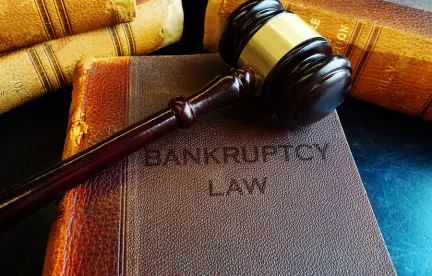Third-party releases in plans of reorganization have long been controversial. The discussion has recently become even more complicated following the Supreme Court’s decision in Stern v. Marshall. Stern and its progeny raise the question of whether a bankruptcy court can ever constitutionally approve non-consensual third-party releases as part of confirming a plan of reorganization.
Consideration of the issue requires several layers of analysis. The first question in any situation is whether there is subject matter jurisdiction over an issue presented in a bankruptcy case. Title 28, Section 1334 of the U.S. Code provides that district courts shall have “original but not exclusive jurisdiction of all civil proceedings arising under title 11, or arising in or related to cases under title 11.” Prior to Stern, a bankruptcy court’s jurisdiction to approve third-party releases in a plan of reorganization was largely dependent upon the degree to which the releases were integral to the plan. For example, if a plan release purported to shield one of the debtor’s employees from liability for an unrelated auto accident, there would be no bankruptcy jurisdiction to support consideration of that issue. Such a release is not in any way “arising under,” “arising in,” or “related to” the bankruptcy case. By contrast, in instances where particular parties provided crucial funding or other support for a plan in order to obtain the release, a plan release of claims against such parties was sometimes found to be appropriately within the bankruptcy jurisdiction of section 1334.
Assuming that a particular plan release is sufficiently central to the plan to satisfy the requirements for subject matter jurisdiction, the next question is how that jurisdiction is to be appropriately exercised. Following issues raised in the Marathon Pipeline decision, Congress enacted 28 U.S.C. § 157 and divided bankruptcy jurisdiction into core and non-core matters. With respect to core matters, bankruptcy judges were given the adjudicative authority to render final decisions. With respect to non-core matters, they were required to submit proposed findings and conclusions for review and entry by an Article III district court judge.
Section 157(b)(1) appears to circumscribe core matters to specified categories of issues “arising under title 11 or arising in a case under title 11.” In contrast, section 157(c)(1) describes as non-core those matters that are “otherwise related to a case under title 11.” Thus, unless a particular plan release provision was considered to “arise under” the bankruptcy code or to “arise in” the bankruptcy case, it would constitute a non-core “related” matter and only be subject to entry of the final order by an Article III district court judge.
Section 157(b)(2) contains a nonexclusive list of core matters. Some of the categories listed are quite generic in their scope. Among them is section 157(b)(2)(L), which includes in the core category “confirmations of plans.” However, do those words mean that any issue, no matter how attenuated, becomes a core matter under section 157(b) if it is included in a plan of reorganization? The introductory language of section 157(b)(1) would suggest not – that only those issues “arising under title 11” or “arising in cases under title 11” could be considered as core when considered as part of plan confirmation.
Some authors have suggested that all third-party releases are necessarily only “related to” bankruptcy cases and therefore that they are never within the core jurisdiction allocated to the bankruptcy courts by section 157(b)(1). If that conclusion were true, the Stern issue would never arise since all plan releases would then be covered by section 157(c)(1) and final orders could only be entered by a district court. This would statutorily eliminate any Stern issues, without the need to consider any constitutional question.
However, it does seem possible to imagine some releases that would “arise under title 11” or “arise in a case under title 11.” Consider, for example (i) a release of debtor’s directors and officers for conduct during the Chapter 11 case, or (ii) a release of the members of, and counsel for, the official unsecured creditors committee. It would seem that those issues could appropriately be viewed as “arising in a case under title 11.” If either of such instances fell within section 157(b)(2), the question would be whether a bankruptcy judge had the constitutional adjudicative authority to approve such releases in a final confirmation order.
Finally, it is recognized that parties can effectively consent to the exercise of adjudicatory power by the bankruptcy court even in situations where, without that consent, only the district court could constitutionally enter a final order. Although such consent may potentially be accomplished by acquiescence to consideration by the bankruptcy court, express consent is certainly preferable.
Although Stern does complicate the question of third-party plan releases, once the issue is carefully analyzed, the constitutional questions may pertain only to a small number of situations. Many cases will be disposed of as a matter of subject matter jurisdiction since they will not be closely enough connected to the case to be consider as “related to” the bankruptcy case under 28 U.S.C. § 1334. The majority of the rest are subject to resolution on a statutory basis since they will likely fall under section 157(c)(1) and be treated as non-core matters requiring submission of proposed findings and conclusions for consideration by the district court. Many instances are also likely to be resolved by consent of the parties. So the residual constitutional issue will cover a relatively small group of fact situations. And even those can be resolved through exercise of foresight by the bankruptcy judge. Even for plan releases that are integral to the reorganization and arguable within the core jurisdiction of the bankruptcy courts, bankruptcy judges would be best advised to utilize section 157(c)(1) and submit proposed findings and conclusions for review and entry by the district court. Such action would obviate the constitutional question and avoid the existence of a Stern issue.



 />i
/>i
